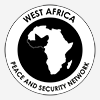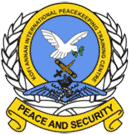The West Africa Peace and Security Network would like to announce that the Deadline for the Call for Papers is has until 8 January 2016.
2nd Annual Symposium of the West Africa Peace and Security Network (WAPSN)
Peace Support Operations in West Africa
WAPSN is organizing its second annual symposium in Accra, Ghana, at the Kofi Annan International Peacekeeping Training Centre in late April or early May 2016 (tbc).
We invite all interested academics, practitioners and professionals to submit 250-word abstracts for papers to be presented, if accepted, at the symposium.
Abstracts must respect the 250-word limit, address one or more of the research questions below, and send their proposal before 8 January 2016 to westafricasymposium@gmail.com
Peace Support Operations in West Africa
The term peace support operation (PSO) is widely used by many civilian agencies to describe their activities in conflict or post-conflict situations, notably in the context of peacebuilding projects and humanitarian relief efforts. Military organizations also use the term PSO to describe a variety of military activities that are distinguished from regular military operations. NATO’s PSO doctrine, for instance, once distributed to African armies, defines PSO as impartially conducted operations, normally in support of an internationally recognized organization like the United Nations. Multifunctional operations are designed to create a secure environment and to facilitate the efforts of the civilian elements of the mission to create the conditions for peace. PSOs may include peacekeeping and peace enforcement, as well as conflict prevention, peacemaking, peacebuilding and humanitarian operations. Outside of military circles, the term peacekeeping is often used to embrace all types of PSOs.
According to several practitioners, academics and military doctrines, what makes PSOs distinct is their impartial nature. PSOs are neither in support of, nor against a particular party, but are conducted in an impartial and even-handed manner. Emphasis is put on the mandate which should not designate an enemy or seek military victory.
Yet, the impartiality (and efficacy) of PSOs is called into question in the context of operations that have blurred the lines between peacekeeping, war fighting, counterinsurgency, counterterrorism, peacebuilding, statebuilding and humanitarian actions. Mixing and muddling civilian, humanitarian, military and warlike objectives in the same mandate can result—and has resulted—in policy incoherence, in local resistance to international forces, and in unachievable political solutions to conflict.
The case of the UN and French intervention in Mali has certainly highlighted the difficulties arising from such blurred lines, as the 2015 Report of the High-Level Independent Panel on United Nations Peace Operations argued. Most notably, the distinction between UN-led peacekeeping and French-led counterterrorism operations is arduous and compounded by the difficulties in distinguishing the ‘terrorists’ from the legitimate political actors. Moreover, the peace support operations in Mali are intertwined with the regional counterterrorism efforts of the G5 Sahel. The latter is not only supported by the French government and military, but its members are troop contributing countries to MINUSMA: Burkina Faso contributes 892 personnel, Chad 1,092, Mauritania 6, and Niger 868 (as of 31 January 2015; Mali being the fifth member of the G5 Sahel).
The case of Mali is only one example. The conflicts in Sierra Leone and Liberia in the 1990s also exposed how regional, political, and ‘warlordism’ dynamics challenged the (often binary) conceptual frameworks underpinning policies of peace intervention. Such examples expose the various political, strategic, and practical challenges facing civilian and military actors involved in peace support operations and raises a number of theoretical, conceptual and normative issues that question the claims to impartiality.
WAPSN welcomes 250-word proposals for papers that analyse the challenges and issues raised by peace support operations in West Africa. The following is a list of suggestions. We strongly encourage the submission of abstracts that link the political and practical to theoretical and conceptual concerns. Proposals from professionals and practitioners in the field are especially welcome.
- Civil-military relations in PSOs
- The relations/interactions/etc. between humanitarian and military activities
- Impartiality of PSOs
- Questions of legitimacy and/or authority behind PSOs in West Africa
- Inter-organisational cooperation in West Africa (AU, ECOWAS, notably)
- The impossibility or possibility of distinguishing peacekeeping from warlike operations (including but not limited to counterterrorism and counterterrorism)
- The effects of PSOs on the possibilities of peace
- The effects of counterterrorism operations in West Africa on PSO efforts
- The policies of major external powers with regard to peace operations in West Africa
- Differences of perspective between regional and international actors
- Questions of implementation.
- PSOs as a route to sustainability for African military forces
- Case study analysis of PSO intervention[s] in West Africa

